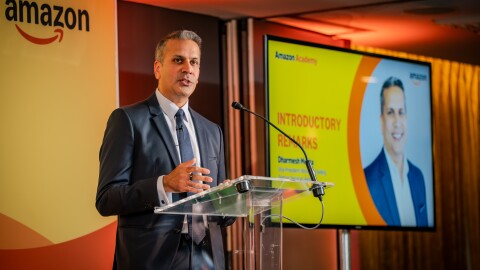INTRODUCTION
Amazon is known for its customer obsession, and a critical part of that is earning and maintaining our customers’ trust. Our customers expect that when they purchase an item in our store, they will receive an authentic and safe product.
We provide vast selection, convenience, and value to consumers, as well as unprecedented opportunities for small and medium-sized businesses. Unfortunately, this also presents an attractive target for criminals and bad actors to attempt to attack our stores. These attacks present a serious risk to our business – if customers do not trust what they purchase through Amazon, we know they can and will shop elsewhere.
AMAZON’S COUNTERFEIT PREVENTION
As a result, Amazon invests tremendous resources in preventing counterfeits, unsafe products, and other types of abuse. In 2021, we stopped over 2.5 million attempts by bad actors to create new selling accounts (a decrease from over 6 million attempts the prior year), preventing them from offering even a single infringing product for sale to customers. Our data also indicates zero safety concerns for 99.999% of the products on our store. Only a tiny fraction of that 0.001% of flagged products are found to have a genuine safety issue once investigated.
As part of our commitment to ensuring that only authentic and safe products are offered, we co-founded with other stores and European institutions the European Commission’s Product Safety Pledge and EU Memorandum on the Sale of Counterfeit Products. Together with other stores and private and public bodies, we work hard to build robust safety and compliance programs and improve the detection of IP-infringing products.
Our first objective is always to deter bad actors from even attempting to access our store and to prevent infringing, unsafe, or non-compliant products from ever being listed for sale. When a new account is created, our vetting includes a number of verifications and uses proprietary machine learning technology to stop bad actors before they can list a single product for sale. Once a seller is able to sell products in our store, we continuously scan all new product updates from those sellers as well as our existing catalogue to find products that might present a concern. When we find something concerning, we may block that listing, ask for more information, or conduct further investigation. We are continually focused on improving our seller verification process to prevent bad actors from listing infringing products, our proactive brand protections to remove infringing listings at scale, and our reporting tools which provide a swift notice and takedown functionality for rights owners. For example, we went even further in terms of seller vetting and launched a new global program to connect one on one with prospective selling partners and verify their identities using a live interview over video. As a result, by the end of 2021, 100% of new sellers were required to pass this verification if they wanted to sell in our EU stores and several other countries.
THE IMPORTANCE OF SELLER CONFIDENCE
Furthermore, a high level of confidence in online services is also important for sellers. Behind every sale is a seller with a business – SMEs continue to account for more than 50% of everything we sell in our online stores. In 2020, they sold more than 1.8 billion products in our stores and created over 550,000 new jobs in the European Union. Legislation should ensure businesses in Europe can succeed and continue to export billions of euros worth of products using marketplaces, whilst also being able to react swiftly to infringers. These obligations need to be carefully balanced to provide certainty, while allowing flexibility to cover the huge variety of business models across tens of thousands of services.
Digital services should also do their part. At Amazon, we stand behind our customers and the products in our store. For example, if a customer receives a counterfeit product, they can leverage our A to Z guarantee to get a full refund, regardless of whether they bought the product from Amazon or from a third-party seller. It is about striking the right balance - we want to prevent bad actors but we also want to support businesses, and in particular SMEs which represent 99% of companies in the EU.
PUBLIC AND PRIVATE SECTOR PARTNERSHIPS TO STOP COUNTERFEITERS
We welcome the potential for the European Commission to help drive cross-industry data-sharing as part of the EU Toolbox against Counterfeiting. Industry data-sharing may be complex but it is also important, and our perspective at Amazon is that when it comes to stopping counterfeits, we should all work together to achieve this goal. We believe that the private sector needs to lead the way in creating a scalable solution for real-time information-sharing on confirmed counterfeiters, and we encourage more companies to work with us in building these partnerships in the future
Last year, we also published a Blueprint for public and private sector partnership to stop counterfeiters. This included the need to better protect our borders from counterfeit goods, shut down confirmed counterfeiters across the retail industry, and increase resources for law enforcement to pursue and prosecute individuals trafficking in counterfeits. We see the aspirations of the Toolbox and IP action plan as having similar ambitions and focus.
All of these initiatives and actions - as well as our human expertise and technology - are there to keep our customers safe, and customer safety will always be our priority.












